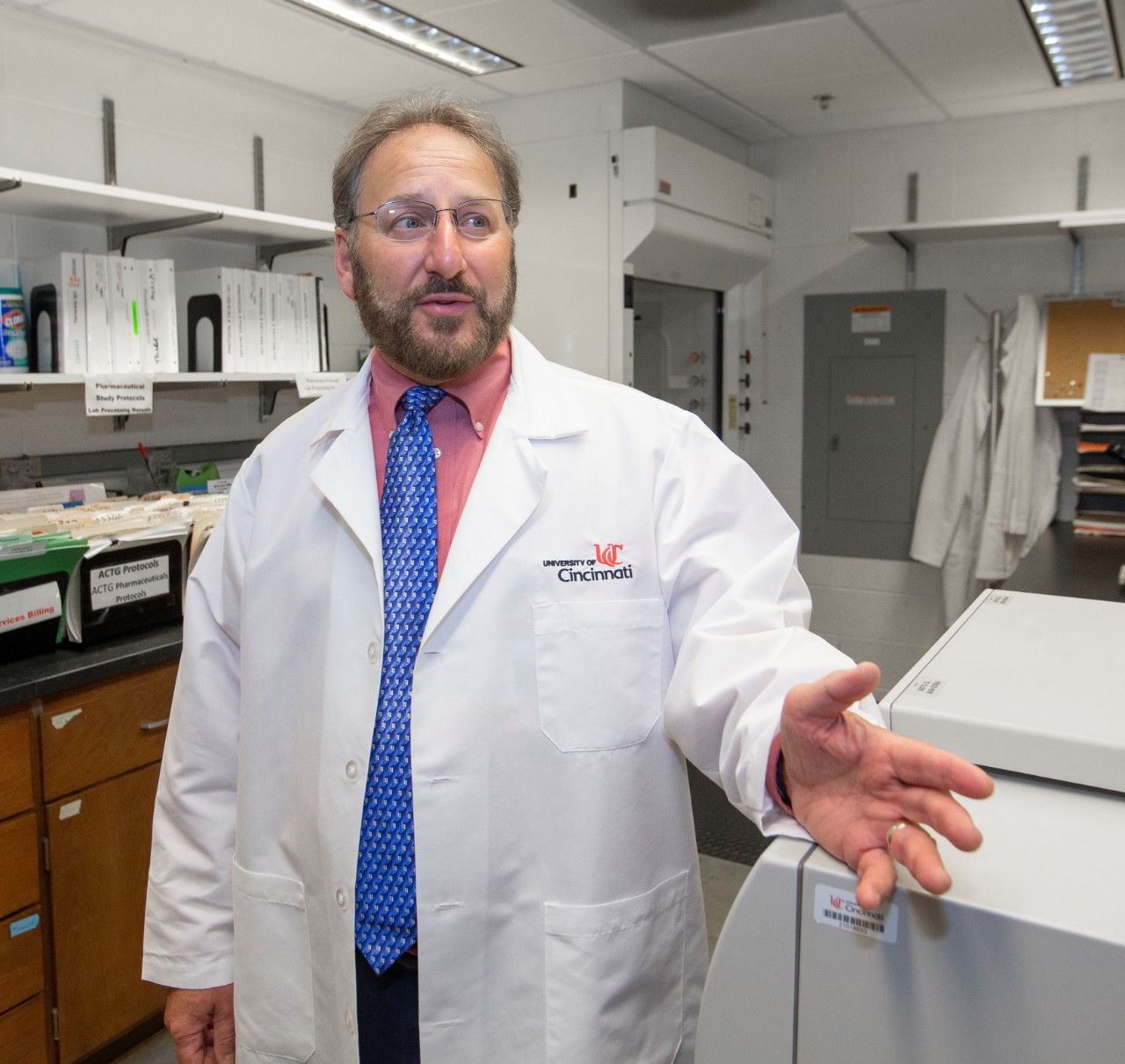
Healthline: Avian flu outbreak in the US: What to know right now
UC expert says transmission to humans, while rare, can be serious
Health experts in the United States are monitoring an increase in cases of bird flu in several states, including Indiana, Kentucky and Virginia. In January, the United States Department of Agriculture detected the first U.S. bird flu case after a hunted wild bird tested positive for the virus in Colleton County, South Carolina.
Experts reported that it was the H5N1 strain, a highly pathogenic avian influenza virus — the same strain responsible for fatal poultry outbreaks across Europe and Asia in late 2021.
In a story on the increase in bird flu published by Healthline, Carl Fichtenbaum, MD, of the Division of Infectious Diseases at the UC College of Medicine was one of the experts cited.

Carl Fichtenbaum, MD, of the Division of Infectious Diseases at the UC College of Medicine/Photo/Joe Fuqua II/ UC Creative + Brand
Experts say the bird flu is an infectious disease, particularly within different bird populations.
“It is influenza season and not a surprise that some flocks are infected with influenza. It may have spread to other areas but has not yet been tested or identified,” said Fichtenbaum.
“Indiana borders Kentucky, so one might hypothesize that regional spread is possible, but this does not explain why in Virginia,” Fichtenbaum added.
However, Fichtenbaum recommends further surveillance monitoring to accurately determine the spread’s cause.
Experts stress that transmissions to humans are rare, but they can be fatal when they occur.
According to Fichtenbaum, “The H5N1 strain has been known to infect humans and cause a more severe form of bird influenza.”
Fichtenbaum said there is a chance that a strain can move into the human population and spread more widely.
Lead photo/Daniel Acker/Bloomberg via Getty Images
Next Lives Here
The University of Cincinnati is classified as a Research 1 institution by the Carnegie Commission and is ranked in the National Science Foundation's Top-35 public research universities. UC's medical, graduate and undergraduate students and faculty investigate problems and innovate solutions with real-world impact. Next Lives Here.
Related Stories
German TV highlights UC expert's ancient Maya discoveries
March 2, 2026
The German television show 'Unsolved Case' talks to a University of Cincinnati expert about ballcourts used by the ancient Maya for a program examining how people used spheres as both tools and toys.
UC studies supplement, therapy alternatives to treat depression
March 2, 2026
Media outlets including Cleveland.com and Cleveland's WKYC News highlighted a new University of Cincinnati clinical trial funded by an approximately $3.5 million grant from the National Institutes of Health’s National Center for Complementary and Integrative Health to test two new nonpharmacological treatments for teens and young adults with depression.
'Paradigm-shifting' study confirms effectiveness of long-acting HIV treatment
February 26, 2026
The results of a clinical trial involving the University of Cincinnati, recently published in The New England Journal of Medicine, show people failing HIV treatments with oral medications were able to be treated successfully using injections.
